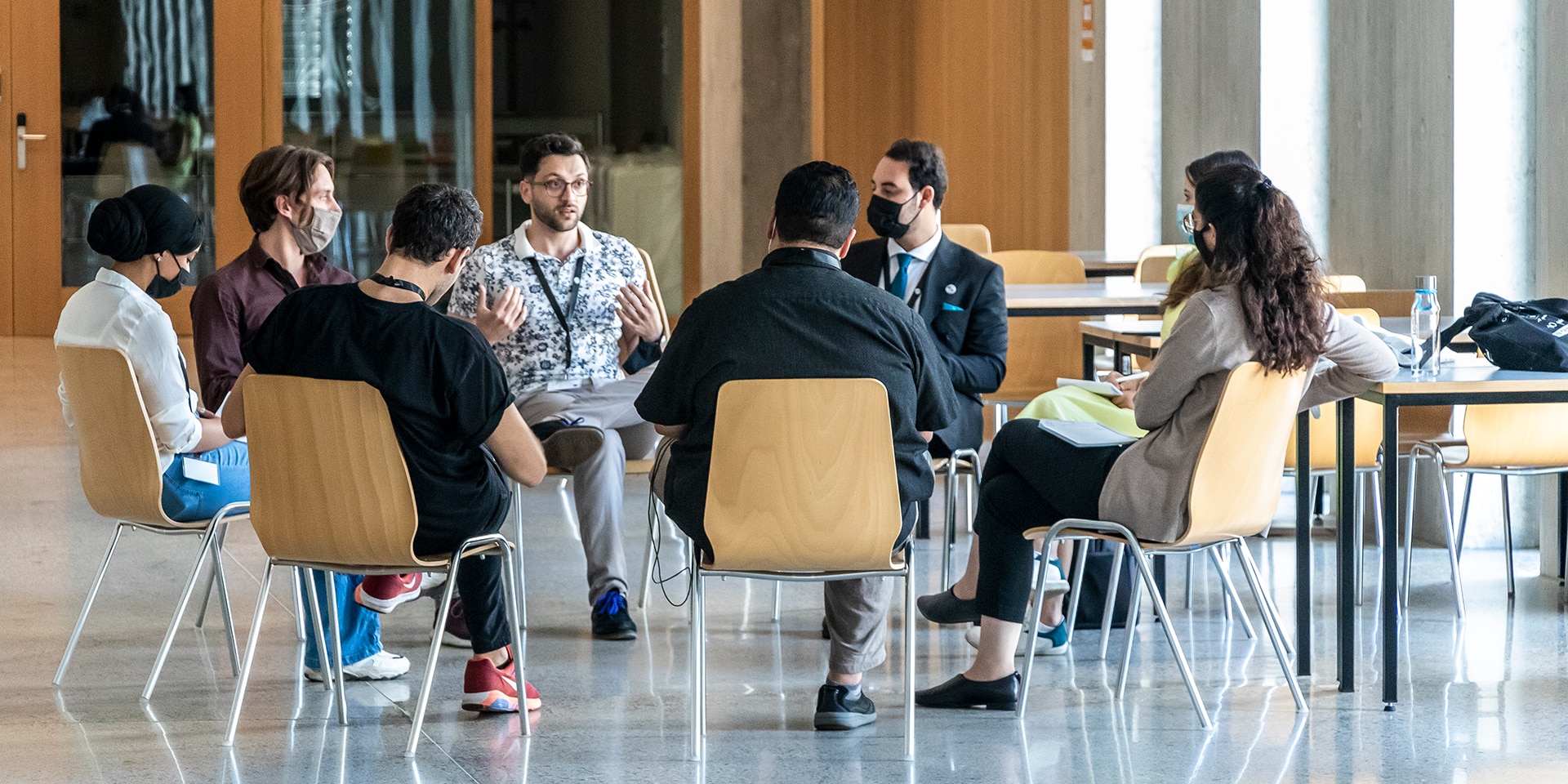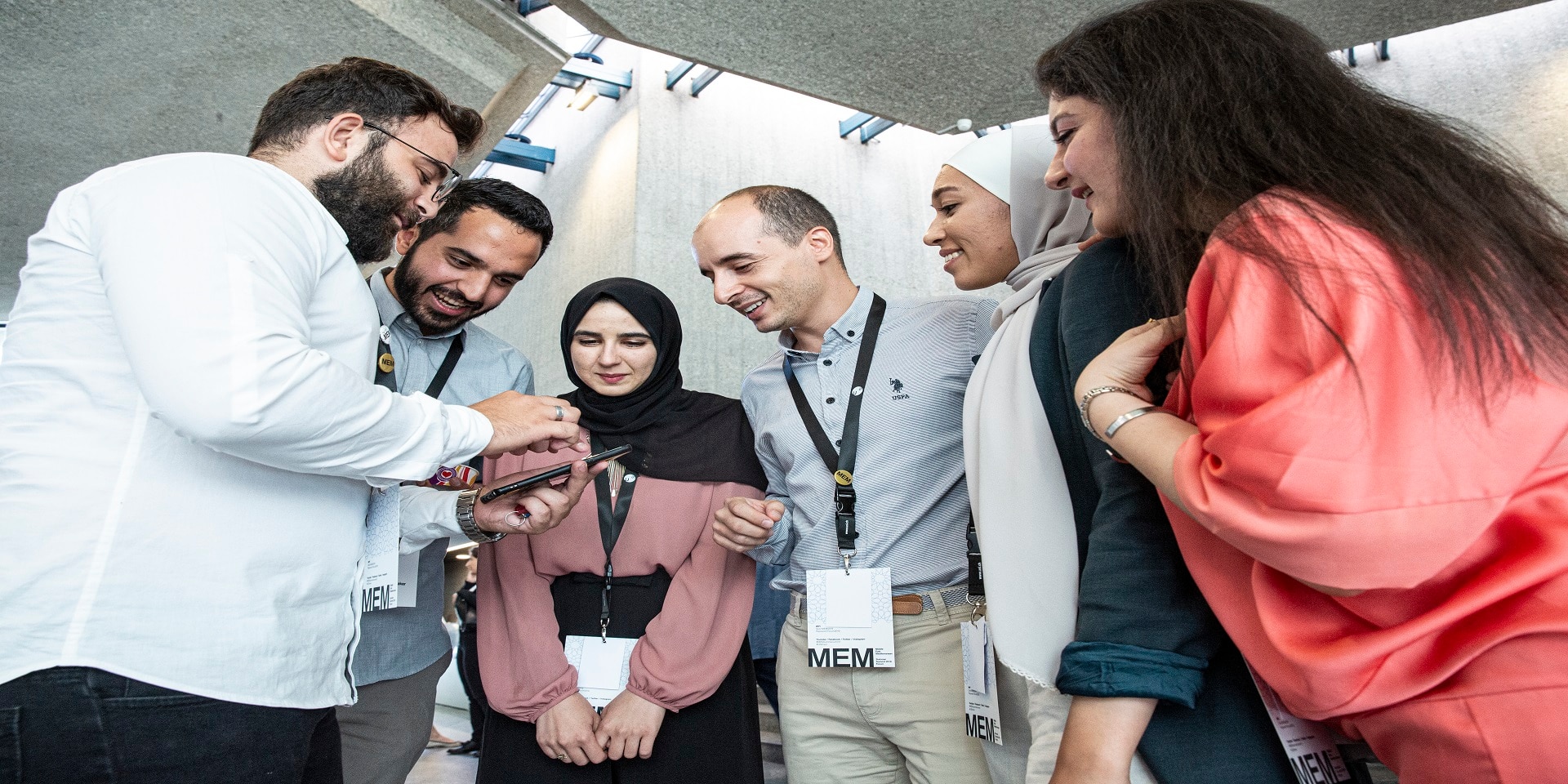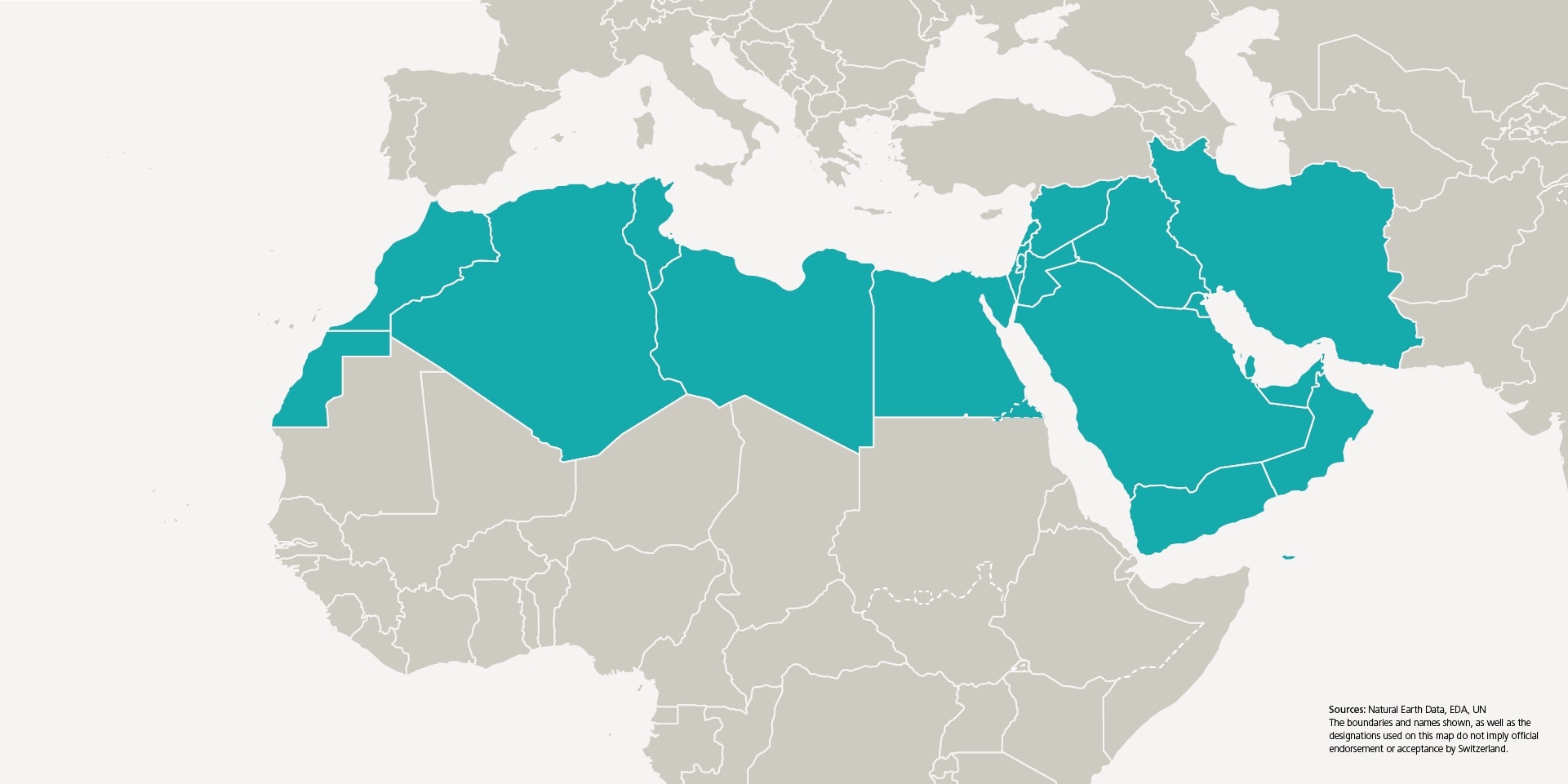"Young people are a source of inspiration for our foreign policy"
The FDFA has been supporting the Middle East Mediterranean Summer Summit organised by the Università della Svizzera italiana for five years. The summit brings together young people from the Middle East, North Africa and Mediterranean Europe. And the dialogue resonates far beyond Lugano: listening to the younger generation is key to implementing a foreign policy that reflects the challenges in this region. Ambassador Maya Tissafi explains.
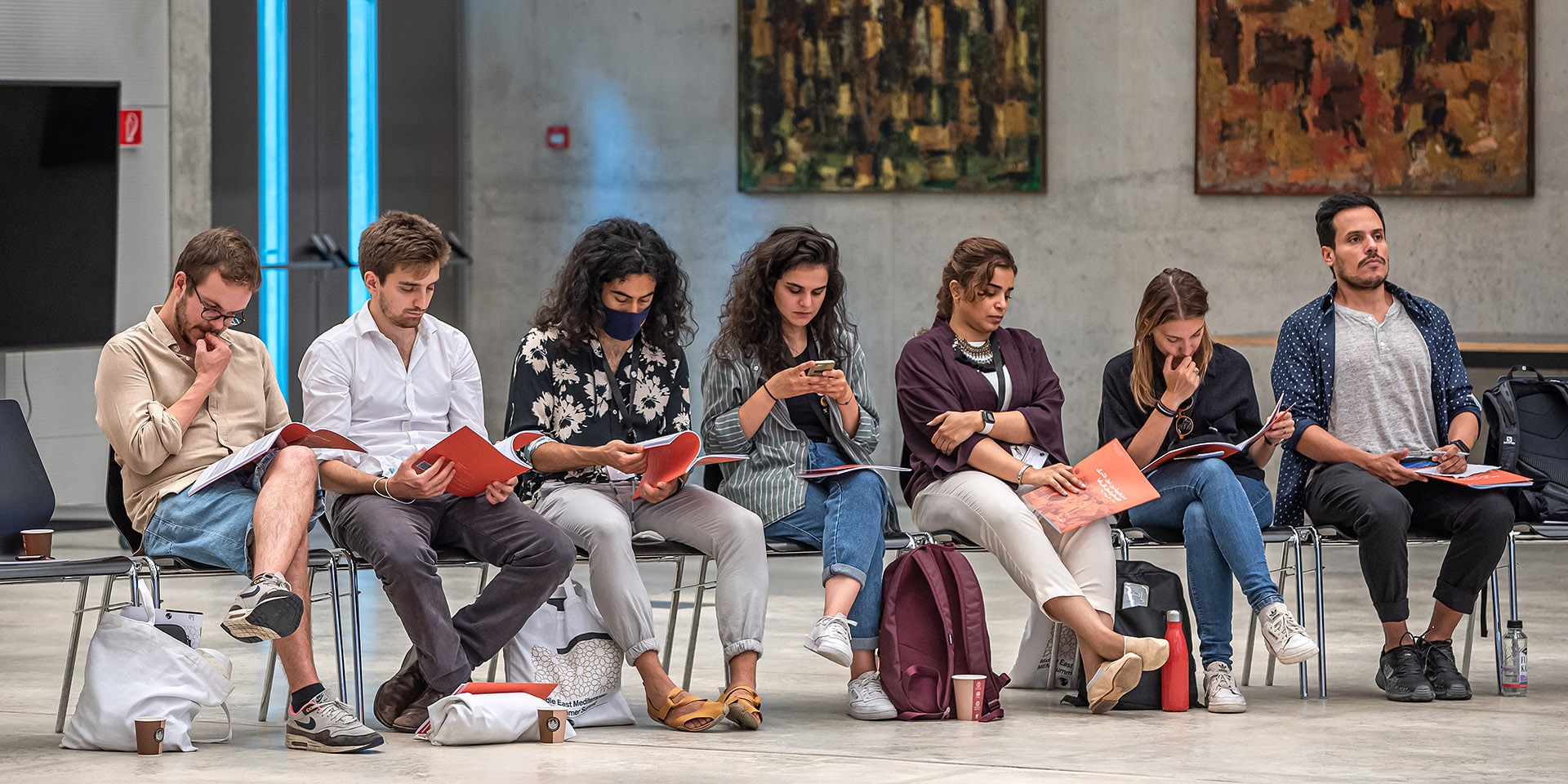
The FDFA is conducting a mid-term review of the MENA Strategy 2021-2024. As part of this review, it sought the views of young Jordanian participants in the MEM Summit. © USI
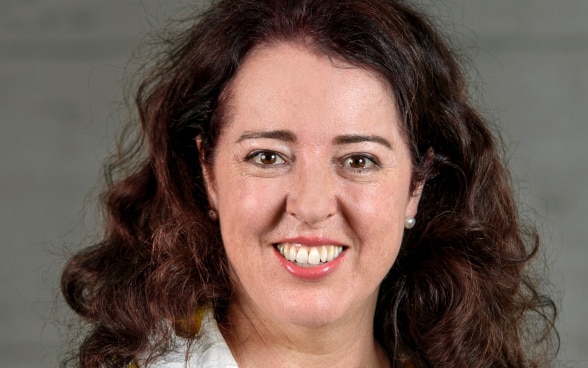
The Middle East Mediterranean Summer Summit (MEM Summer Summit) brings together young people from the Middle East and North Africa (MENA) regions in Switzerland each year. Why is dialogue with the younger generation in particular so important for the FDFA?
The FDFA is one of the partners of the MEM Summer Summit, an informal platform for exchange in Switzerland for young people with different backgrounds and skills. Since the summit was launched five years ago, feedback has been positive. Discussions at the MEM Summer Summit aren't just useful for the participants but are also a source of inspiration for our own foreign policy. Don't forget that young people are a sizeable demographic group in the MENA region: the under-25 age group alone accounts for 45% of the population. The MEM Summer Summit helps give them a voice, and creates opportunities for them to meet and be inspired.
As head of the FDFA's MENA Division, what do you think about these exchanges between young people on issues pertaining to the present and future of this region?
The liveliness of the discussions at the MEM Summer Summit have always impressed me, as well as how well the young people taking part work together – despite the huge differences in this vast and diverse geographical area.
The current pace of social, economic and technological change is such that different generations sometimes face very different realities. For example, the growing use of new technologies such as AI is transforming the economy and the world of work profoundly. That's why it's even more important to listen to what young people have to say – so that our foreign policy continues to keep pace with these changing realities.
During the summits, the Swiss ambassadors posted in the MENA region also take part in order to promote open dialogue with the young participants. This year's edition included the ambassadors to the UAE, Lebanon and Tunisia.
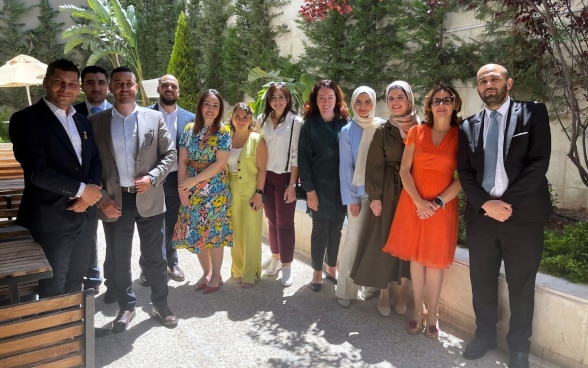
When you're travelling in the region, you always use this as an opportunity to meet young people. What experiences have touched you the most?
Young people want to have a say in their future. They advocate for climate policies, environmental issues and good governance. They want to get a good education that will give them opportunities to find jobs. I have met young women and men in Gaza who have built innovative start-ups offering products and services across the borders even though they have never left Gaza themselves. This is where new technologies have a great role to play. I have also met young people in Jordan, Iraq and Israel, who notwithstanding war, conflict and poverty are working creatively to help build a more just and peaceful future. This impresses me deeply and is a key driving factor in my work.
At the MEM Summer Summit, each person brings their personal experience to the table and shares their ideas with other young people from countries that may even be at conflict with each other. The summit has created a culture that fosters dialogue. The diversity of voices leads to debates which can result in any number of visions – creating better prospects for the younger generation in their countries, or jointly combating global challenges, for example. A multiplier effect in the region would be welcome of course, but reducing mutual prejudice and creating a regional network is already an important achievement. I am sure that these experiences will have a lasting effect.
How does the FDFA continue the dialogue with the young people it meets at the summit?
The Università della Svizzera italiana (USI) organises workshops with MEM alumni in different countries together with the Swiss embassies based there. The last one I went to was in Amman, for example. At the moment, we are carrying out a mid-term review of the 2021–24 MENA strategy. As part of this review, we asked the alumni based in Jordan how we could adapt our approach to reflect the great number of changes that have taken place over the past two years. The feedback we received was both constructive and critical, which made it very useful for our reflections. We did this again on a much larger scale this year with all the summit participants in Lugano.
The issues discussed in Lugano are indeed key elements of Switzerland's MENA strategy. To what extent do the summit participants support its implementation?
The fact that the issues discussed at the summit and the priorities identified in our MENA strategy overlap is a good sign. It means that our approach is in line with current realities.
Switzerland's foreign policy has to be geared towards the issues of the future. It must also be aware of its own resources, what the conditions in the countries it seeks to assist are, and the importance of integrating the voice of young people in its analyses. If we can succeed in this, we'll have an excellent basis for cooperation with these countries.
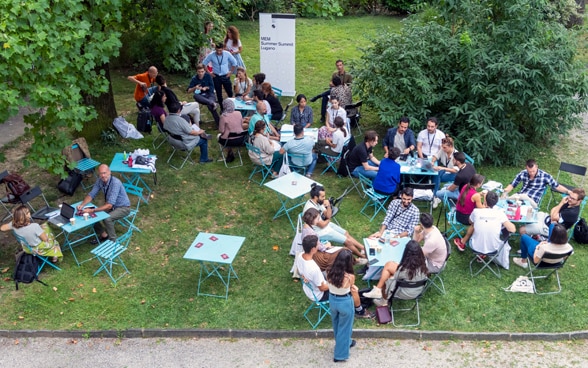
The situation in the region is changing however. Will the strategy change too? What lessons can be learned from the recent summit in terms of implementing Switzerland's MENA strategy?
As I just mentioned, we're currently carrying out a mid-term review of the 2021–24 strategy. This is the time to look back over the past two years and update our approach where necessary, while maintaining the focus on our five priority themes: peace, security and human rights; migration and protection of people in need; sustainable development; economic affairs, finance, science; and digitalisation and new technologies.
In the meantime however, there have been many changes in the region – particularly on the economic front in the aftermath of a long pandemic followed by the war in Ukraine, which not only affects Europe but the whole world. Issues such as food security, water scarcity, migration, AI and security concern us all. In fact, all of these developments were discussed at this year's MEM Summer Summit and we look forward to being able to benefit from these reflections as well as other feedback from the participants.
Representatives of MENA country governments also took part in the summit again this year. How important is the summit for the FDFA in terms of strengthening direct political contacts between Switzerland and these countries?
We maintain regular, high-level contacts with all states in the MENA region, where Switzerland has an extensive diplomatic network. In the last three years, the head of FDFA visited most of the MENA states. Although Switzerland's bilateral meetings are planned independently of the summit, the fact that the USI invites a number of government representatives to speak each year does provide additional opportunities for exchange. Bilateral visits to Switzerland organised by the FDFA can coincide with and contribute to the MEM Summer Summit however.
As head of the FDFA, Ignazio Cassis also supports the summit and has taken part several times. Last year, for example, he was invited together with his Omani counterpart, Foreign Minister Sayyid Badr Albusaidi, who was on a bilateral visit to Switzerland. The two ministers discussed a number of issues with the young participants, including peace and security. This year, the Youth Minister of the United Arab Emirates is expected to physically attend the Summit. The Moroccan Minister of Energy Transition and Sustainable Development is also scheduled to attend virtually the summit in Lugano. Just to mention the high-level guests from the MENA region.
MEM Summer Summit
The USI launched the first MEM Summer Summit in 2018 with the support of the FDFA, which is a partner in this venture. Each summit opens with a seminar lasting several days, during which participants consider transnational opportunities and challenges they have in common, such as energy transition, water stress and climate change.
These seminars are followed by a forum that includes high-level guests invited by the USI to speak on the summit's chosen topics, and with whom participants can exchange views.
The fifth edition of the MEM Summer Summit is taking place from 18 to 27 August. You can follow the forum on 27 August by clicking here:

